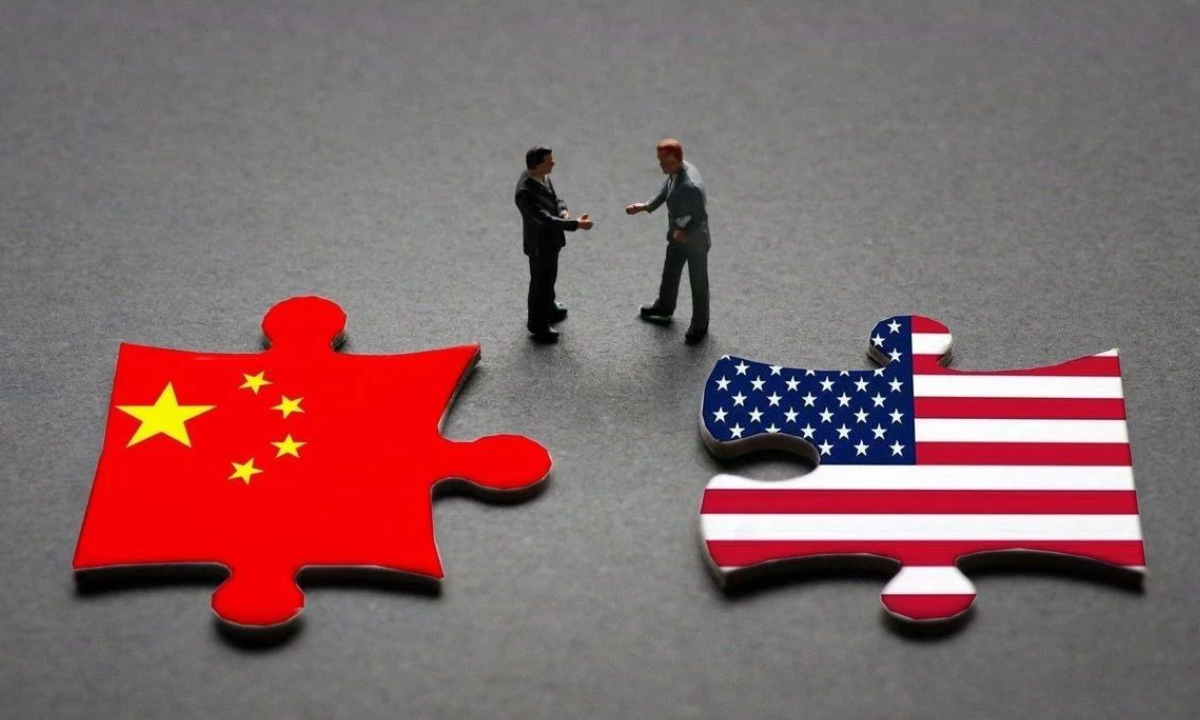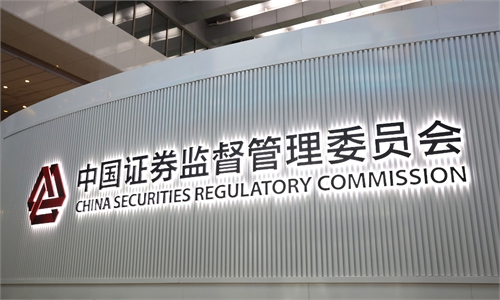Audit oversight agreement of US-listed Chinese companies a symbolic case of China-US cooperation: Global Times editorial

Photo:IC
The China-US cross-border regulatory cooperation has taken an important step forward. On Friday, China Securities Regulatory Commission and Ministry of Finance signed an audit oversight cooperation agreement with the US Public Company Accounting Oversight Board, with a view to advancing relevant cooperation in the near future. Some US media outlets couldn't wait to release the news in advance, and Chinese stocks in the US market surged in response. This has provided a helpful side note to our perception of the basic logic of the China-US relations, as well as the real attitude of the market and public opinion on bilateral ties.
There have been long-standing disputes between Beijing and Washington on the audit oversight of Chinese companies listed on US exchanges. The US Holding Foreign Companies Accountable Act (HFCAA) was signed into law by former US president Donald Trump at the end of 2020, which directly triggered a discussion over "US-listed Chinese stocks may be seeking delisting from the US market."
Washington has been using this law for the past two years to intimidate US-listed Chinese stocks with a "delisting timetable." In particular, some in the US who have sought to "decouple from China" have politicized the capital market regulation and even had the urge to push a financial decoupling between the two countries. In addition, they have smeared many of Beijing's measures from time to time. By the end of July, the US Securities and Exchange Commission had put 159 China Concept Stocks on its delisting watch list, according to the HFCAA.
It is clear that such a trend will lead to a lose-lose situation if not addressed ahead of time. Over the past few decades, along with economic globalization, a large number of Chinese enterprises started to trade in the US exchanges, broadening their financing channels and bringing US investors more investment opportunities.
The US-listed Chinese companies have become an essential vehicle of the economic exchanges between the two countries, as well as convergence and inseparability of both sides' interests. As of March, there were 261 Chinese companies listed in the US, with a total market capitalization of about $1.3 trillion, of which about $200 billion was held by US institutional investors. Once Chinese stocks are forced to delist from the US market, China will definitely not be the only one whose interests are to be jeopardized. The responsibility and wisdom of the Chinese and US regulators are demonstrated by the fact that the two sides were able to negotiate and find a rational and pragmatic solution.
At the same time, this shows again that it is normal for China and the US to have differences and disagreements, which should not be an excuse for the two countries to move toward full-scale confrontation. It is possible for Beijing and Washington to find ways out, talk things out and sort things out as they should, as long as they uphold an objective, pragmatic, and mutually respectful attitude. This is in line with the law and the will of the people of both countries.
It is also reasonable that Beijing and Washington have made a certain degree of adjustment during consultations to finalize the resolution of the problem. China has always emphasized that it respects overseas regulators' efforts to strengthen supervision over accounting firms to improve the quality of the financial information of listed companies, but opposes the wrong practice of some forces politicizing securities regulation.
At the same time, China has taken the initiative to consolidate the responsibility of listed companies in their information security through a series of laws and regulations, aiming to eliminate risks that should not have appeared in the first place. It is like opening the windows gradually after installing the guardrails. It effectively balances opening-up and security: It not only fulfills the need for regulation, but also prevents Chinese enterprises from "running naked" and endangering national security.
In addition, the fact that China and the US reached a cooperation agreement on audit oversight provides a useful lesson for the current bilateral relationship - the two countries can reach a solution that addresses each other's concerns on some critical and sensitive issues, as long as they adhere to the principle of reciprocity and mutual benefit. It should be noted that in this cooperation, the US needs to strengthen corporate supervision, while China needs to maintain national security. It is commendable that the concerns of both sides have been understood and respected by each other, and their needs have been met through wise arrangements. This is a symbolic case and is also worthy of a good understanding of those in the US who abuse the concept of "national security."
Retaining the listing of Chinese companies in the US benefits investors, listed companies, and both China and the US. It is a win-win institutional arrangement. The Chinese side has always been clear about this arrangement, and its efforts are visible and tangible.
The development of the situation also proves China's judgment. Some people with ulterior motives had previously placed the responsibility of China-US frictions on Beijing, which is against the facts and disgraceful. China responded to all these distortions and smears with practical actions. It also sent a clear signal to all types of enterprises: China firmly supports enterprises choosing the destination of listing in accordance with their own judgement. China's determination to expand a high level of opening-up will not change, nor will our efforts to actively integrate into the global market. China will open its door wider and wider.

